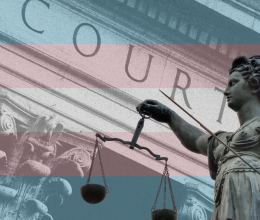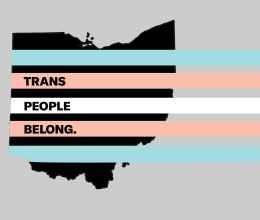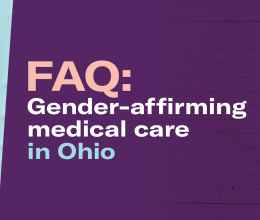While marriage equality became the law of the land last year, the fight for full equality for people who are gay or transgender continues on. This is especially true in Ohio, where you can be fired from your job, kicked out of your home, or denied basic services at any business simply because of who your partner is, or how you express your gender.
These basic services, or public accommodations, have become a lightning rod for many anti-LGBT equality activists to rally behind in the wake of marriage equality. However, it is important to define what this means. Public accommodations are considered to be spaces, whether owned privately or publicly, that are open to the public. This includes but is not limited to:
- Movie theatres
- Hotels
- Concert Halls
- Sports arenas
- Restaurants
- Bars
- Businesses open to the public—including bakeries
- Non-brick and mortar businesses—including photographers
- Public restrooms in these facilities
- Gyms
- Medical offices
This extensive list that was created under the federal Civil Rights Act when access to public places was denied to African Americans. While there are important differences between struggles for racial justice and the LGBT rights movement, it should remind us what our country looks like when businesses turn people away because of who they are. No one should have to enter a public place with their family wondering whether or not they will be denied service.
The term public accommodations refers to a broad range of business, buildings and facilities that are open to members of the public. These are the next site in the struggle for LGBT rights.
The history of discrimination in this country should act as a guide to keep us from making the same mistakes. As a nation, we decided a long time ago that businesses that are open to the public cannot discriminate against someone because of who they are. But right here in Ohio we are failing to follow that path by allowing this discrimination to continue. How will we look back on this time in our state and our nation, when we said it was okay to turn away a family from a restaurant because someone did not approve of two men raising a family, or a young woman who dressed or acted “too manly?”
It is time for Ohio’s legislators to protect people from discrimination, including people who are gay or transgender, by updating our laws. Because what this is really about is about treating people as we want to be treated. It’s about remembering and learning from our past mistakes.







